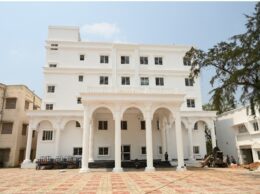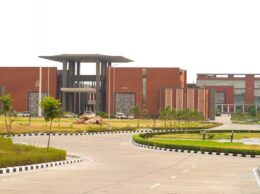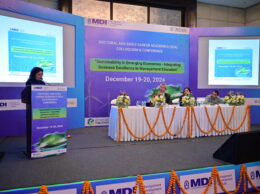New Delhi : Realising the gaps in the existing middle-school STEM curricula which make students lose interest in science early on and pose challenges as they progress to higher grades, India’s Edtech Neoschool, StayQrious, today announced the launch of their world-class mastery-based Science foundation course. The Neoschool understands that a holistic evidence-based learning pedagogy plays an important role in driving the curiosity of students for STEM subjects, inspiring many of them to pursue these subjects in a deeper fashion later on in their lives.
Therefore, focussing on STEM foundations, well researched learning techniques and 21st century skills, the course is specifically curated for young learners from class 6th to class 8th, and would dive deep into the core concepts necessary to develop a strong science foundation. The curriculum has been designed in collaboration with Dr. Brian Johnsrud, Founder of Stanford’s first digital learning research lab.
Talking about the course Dr. Brian Johnsrud, founder of Stanford’s first digital learning research lab said “Students learn best when they get access to deep and meaningful learning experiences that stem from evidence-based pedagogical practices. They develop the essential social-emotional skills that are critical for the 21st century when they learn in a social setting, teaching each other. This mastery-based and social-learning approach to STEM education that is grounded in learning-science research is what makes StayQrious have something truly unique and valuable to offer to students and parents who would like to ensure meaningful learning outcomes for their children.”
Commenting on the launch of the science course Mr. Aanand Srinivas, founder and CEO of StayQrious said “In my years of teaching and observing the learning patterns of 100,000+ students, I saw that in middle school, students aren’t taught science conceptually and so, they don’t actually develop a love for the subject or a solid foundation. They are also not taught the appropriate learning-strategies for the subject (how to learn science differently from say, history). And because of this so many of them are ending up struggling in high school with low confidence, low motivation levels, and an overall lack of interest in Science and STEM careers.”
He further added, “At StayQrious, we understand how important it is to give a solid STEM foundation to our children and built this course to solve this problem. Our vision is to connect billions of learners across the world by giving them access to a neo-school that sits alongside traditional schooling. With our neo-school, we have changed three core things about the way science is taught today. The first is the way the science curriculum is arranged. We have changed the curriculum from a linear list of textbook topics that makes every topic look important to a circular arrangement of specific core concepts that student’s master, starting at the centre. The second is the teacher’s role. We’ve changed the role of teacher from lecturer to a learning-coach, specially trained in learning psychology. They teach students the right study-strategies so that they develop the independence to learn the right way in higher grades. The third is the methodology. We have changed the methodology from a time-table based classroom to a mastery-based one where students undergo exciting and meaningful learning experiences. Instead of being rushed to the next topic because time is up, they get ample time and support to develop confidence and a lifelong love for the subject. “
The course aims to ignite curiosity, help children achieve concept-mastery and practice evidence based learning techniques which will lay the necessary foundation required for higher grades.
Level 1 of the course is 12 months long and priced at INR 2999 a month for 8 classes a month. The course, aimed at all students from grades 6th to 8th, covers essential concepts that cut across all the boards to ensure that students master age-appropriate fundamentals. Students will be involved in active learning and will work as a team of six, to collaborate and learn science as a team. This team-work not only enhances their learning skills and motivation to learn, but also strengthens their critical 21st century skills, such as collaboration and communication.









